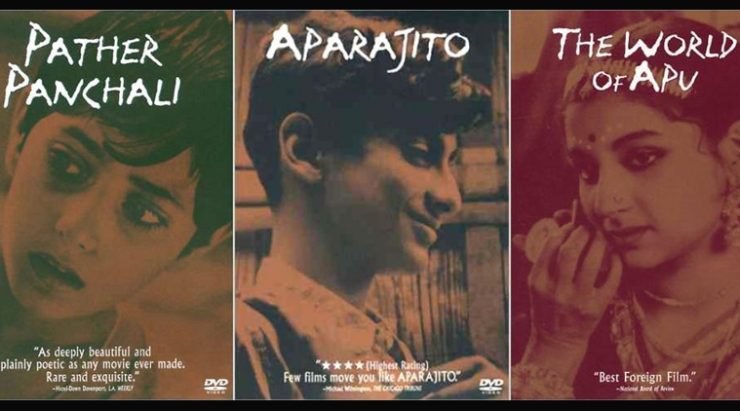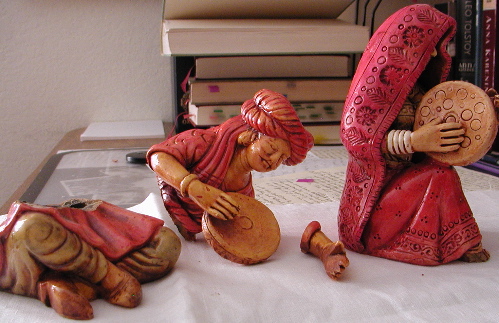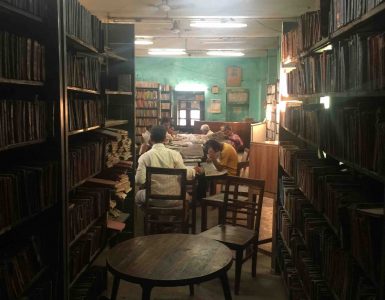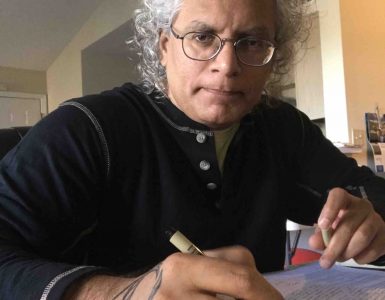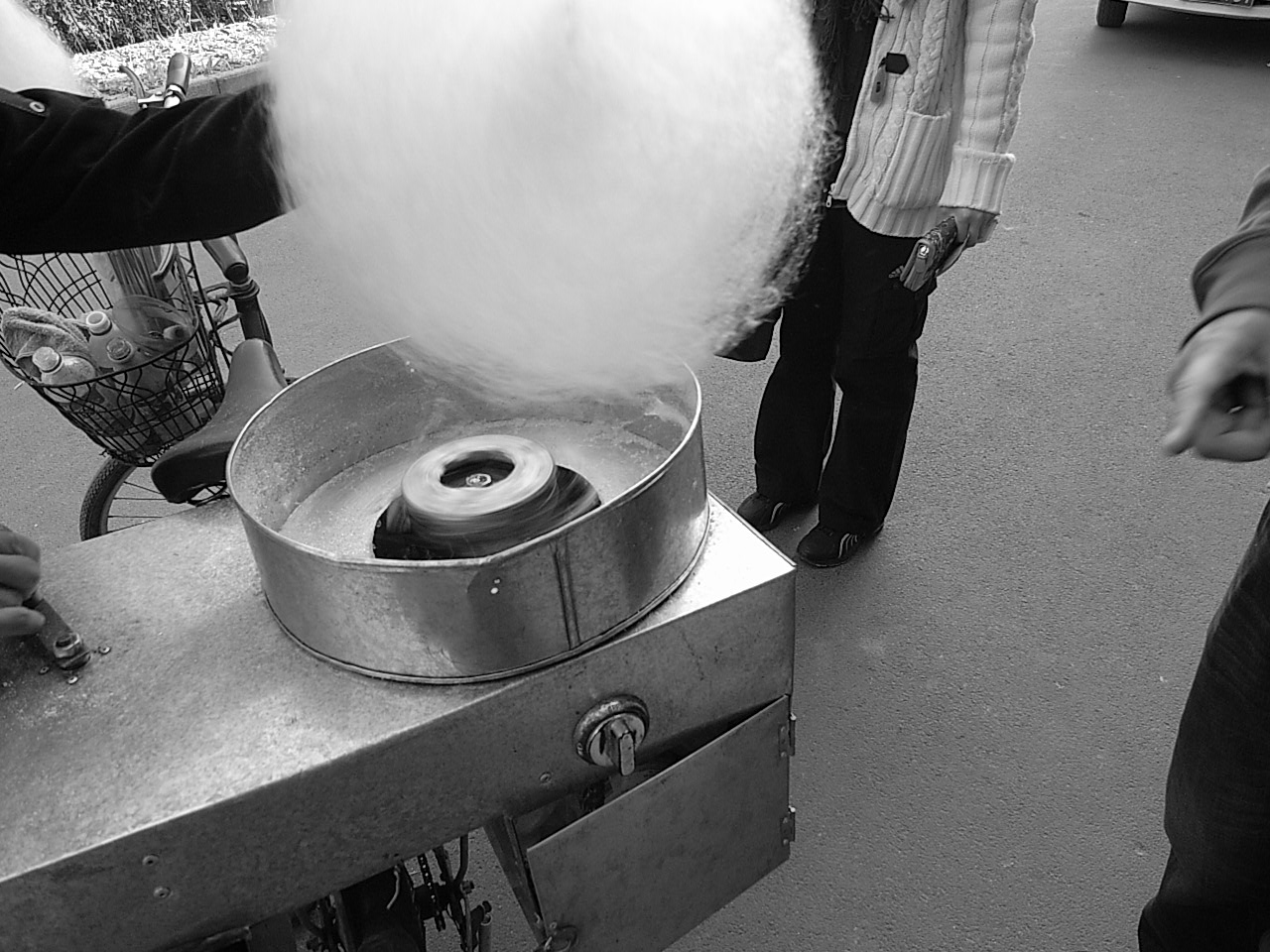There is a scene in Tarkovsky’s movie Stalker, which goes to the heart of longing. The Stalker, recruited by three men to take them to the Zone, says that when you enter the Zone, your wish will come true–not just any wish, but your innermost wish.
But I think our inner antennae are too blunted, and our vocabulary is too sure of itself to seize this innermost wish, this longing. Perhaps this longing is a prelude to that genuine homeless-ness that Stephen Erickson speaks of:
“To experience oneself as a visitor or tourist, though perhaps with no home to which to return, to experience the underlying futility of all attachment or emotional investment, is said to be the beginning of a very deep wisdom and a virtually inscrutable life enhancement – however painful may be the ontological anxiety required to reach a sufficiently developed existential insight in this regard.” (International Philosophical Quarterly, September 1997).
Who among us have escaped that feeling of longing upon watching Satyajit Ray’s The Apu Trilogy?
I’ve heard a lot about Satyajit Ray’s movies growing up in India, but never really watched them, mostly because I was always partial to Ritwik Ghatak. Moreover, having moved to the USA years ago, my exposure to Indian films amounted to no more than a handful of them since then.
But now I am older, and the passage of the years softened my skepticism. So I borrowed The Apu Trilogy series from the Mountain View library, and watched them all in one sitting last week.
Every young boy who has read Iain Banks’ The Wasp Factory develops razor sharp talons that tear away in a bloody dimension where the roots of tragedy are sown. I was no different. Now, in the post 9/11 world, it feels like that feeling of tragedy is communized, being sloshed around in a tin box of the modern hollowness called a blog.
But even more ghastly is that cultural separation I felt in the scene in Pather Panchali, the first in the trilogy, in which the old woman eats with her hands. Repelling. But isn’t that how I grew up also?
The story of Durga’s mother when she says: “I had dreams too, to be, or to do, something, look at us now, this place is like a forest, no one is there to talk to, you wouldn’t understand these things…” is the story of all our mothers. So is the lamentation of the mean-spirited relative neighbor. Durga’s death seems to have a cleansing effect even on the mean neighbor. She says wistfully, “Year after year, at the same place, makes you mean-spirited, it’s done that to me.”
One of the most poignant scenes, they are all poignant, is when Apu steps out of the house moments after Durga dies, wraps a shawl around himself, picks up the funeral pot, and steps out. He then looks up in the sky as if sensing the signs of the impending rain, goes back into the house, and emerges with an umbrella. Throughout this scene, we detect an indelible change towards resoluteness in Apu’s demeanor. There is an inescapable sensation in the viewer’s awareness that the love between the brother and sister is of a kind that can only reach its perfection through tragedy.
By moments like these, Apu’s childhood grows into an awareness of the world around him.
When they arrive at the house of Apu’s grand uncle, we are in Aparajito now, the second of the trilogy, the first thing he sees is a train. Excited, he shouts at his mother, “Mom look! A train!” and then a subdued memory strikes him. We know what it is. His mother knows and senses that too. Throughout the movie, no matter what happens at every turn, it seems to us that the tragic face of Durga and her sad memory is always in Apu’s mind.
Part of growing up too is the hurried insensitivity. When the mother tries to wake up Apu on the day of his departure, she is horrified when he doesn’t respond. In that split second, the horrid memory of the death of her daughter and husband strikes her again. In his confusion, Apu feels so overwhelmed by the force of emotions of his own, and his mother’s, that he rushes to the train station without saying goodbye to her. Watching her through it all, it seems as if a mother’s anguish is the most unreachable and inexpressible through the language. We see it, but we are unable to capture it in words. How does she sustain it? When you see this trilogy, you start to believe Tolstoy is achievable.
Next time he returns to the village, it’s too late, his mother is already dead. And so one by one we see Apu’s family members die, swept by the unstoppable force of life. This is the movie that shines so brightly that it is hard to distinguish it from our own life–so indelibly the story is enmeshed and impressed in the soul of the viewer. Through it all, we experience that the real source here is that inexhaustible capacity of love in a woman, as a mother and as a sister. Men are simply the carriers of that love, expressing and transferring it from one generation to another, according to their own capacity of living in this world.
In the third movie Apur Sansar, the onslaught of ironies and tragedies continues, albeit at a somewhat relaxed, box-office friendly, pace. Apu is now a man living in the city. When his friend proposes to take him to that “old world village,” to take a break from it all, the irony is not lost, given where Apu came from. As they are walking under the tunnel, after a sumptuous meal, Apu says: “You know why I feel like on top of the world? After a long time I’ve had a good meal, thanks to you.” He wants to write a novel, of a boy who goes from a small village to the city, who wants to be a great man when he grows up. As Apu narrates the plot, his eyes glint with a swelling of self-awareness and a love for the life around him.
After the accidental marriage, he starts to talk about himself to Aparna, his newly wedded wife. He tells Aparna he had a sister. How indecipherable life is, which transforms, allows Apu to get to that stage in life when he can say with an almost as a matter of fact way about his sister, after all that! The strong impressions of his sister and mother keep on persisting in our, the audience, minds and we can only begun to relax our minds from it when Aparna arrives.
But the fate has one more twist. Apu walks back home, dreaming about the letter he had just received from Aparna, who has gone to her parents’ expecting to deliver a baby. Murari is waiting for him as he gets home. The baby came a little too soon and Aparna died. Never in any movie have we seen so much life depicted by a narrative that is so regularly punctuated with death.
The Satyajit Ray Film and Study Center at University of California, Santa Cruz (RayFASC) published this essay of mine in 2005. For whatever reason that site went way. See the Wayback Machine archived link here.
